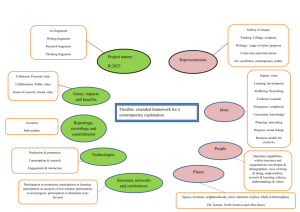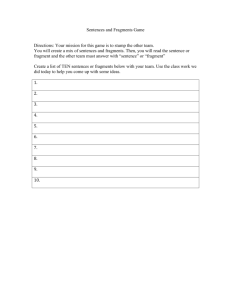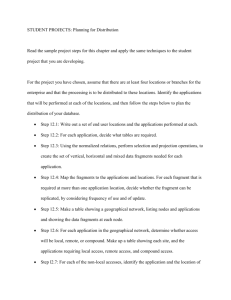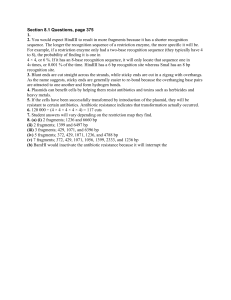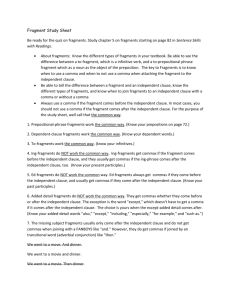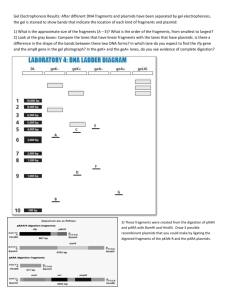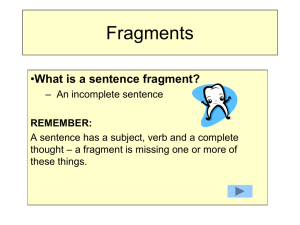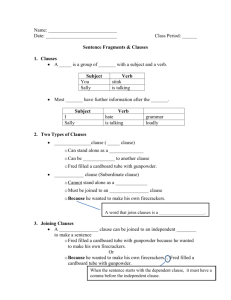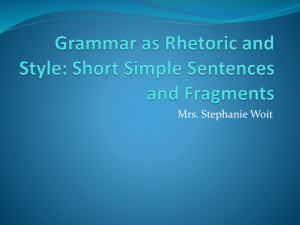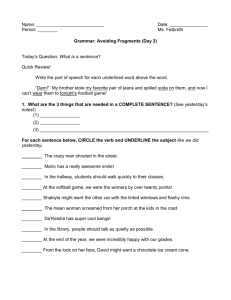The Complex Sentence
advertisement
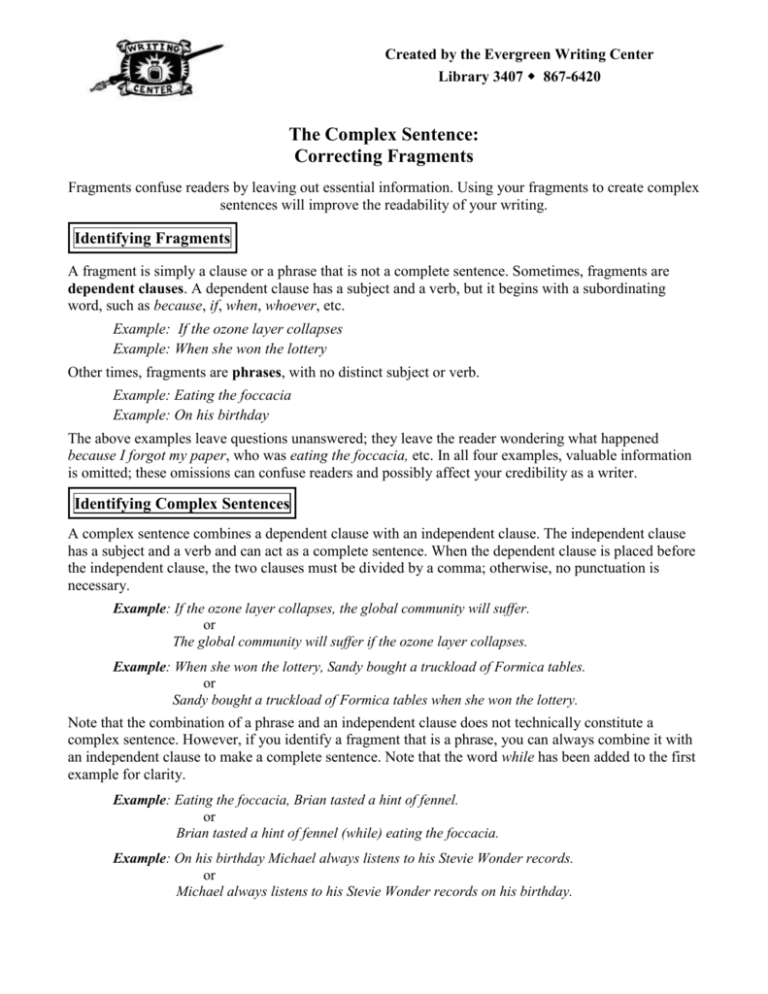
Created by the Evergreen Writing Center Library 3407 867-6420 The Complex Sentence: Correcting Fragments Fragments confuse readers by leaving out essential information. Using your fragments to create complex sentences will improve the readability of your writing. Identifying Fragments A fragment is simply a clause or a phrase that is not a complete sentence. Sometimes, fragments are dependent clauses. A dependent clause has a subject and a verb, but it begins with a subordinating word, such as because, if, when, whoever, etc. Example: If the ozone layer collapses Example: When she won the lottery Other times, fragments are phrases, with no distinct subject or verb. Example: Eating the foccacia Example: On his birthday The above examples leave questions unanswered; they leave the reader wondering what happened because I forgot my paper, who was eating the foccacia, etc. In all four examples, valuable information is omitted; these omissions can confuse readers and possibly affect your credibility as a writer. Identifying Complex Sentences A complex sentence combines a dependent clause with an independent clause. The independent clause has a subject and a verb and can act as a complete sentence. When the dependent clause is placed before the independent clause, the two clauses must be divided by a comma; otherwise, no punctuation is necessary. Example: If the ozone layer collapses, the global community will suffer. or The global community will suffer if the ozone layer collapses. Example: When she won the lottery, Sandy bought a truckload of Formica tables. or Sandy bought a truckload of Formica tables when she won the lottery. Note that the combination of a phrase and an independent clause does not technically constitute a complex sentence. However, if you identify a fragment that is a phrase, you can always combine it with an independent clause to make a complete sentence. Note that the word while has been added to the first example for clarity. Example: Eating the foccacia, Brian tasted a hint of fennel. or Brian tasted a hint of fennel (while) eating the foccacia. Example: On his birthday Michael always listens to his Stevie Wonder records. or Michael always listens to his Stevie Wonder records on his birthday. Created by the Evergreen Writing Center Library 3407 867-6420 Exercise Part One Read the following example paragraph. Note all fragments and use what you know about complex sentences to revise them. The van, a 1978 Volkswagen microbus, putted its way across Wyoming, the wind in the back seat. Sounding like the backside of a waterfall. Channeled by six wobbling louvers, and filling the van with a whistling hurricane. The wind deafened the back seat rider. But the heat of mid-July made us roll down our windows and invite the wind right inside. We figured that July wanted us to suffer more than heat; it wanted us to suffer gusts of grit-laden wind, too. We covered our eyes against the dust and stretched our voices against the wind. Which tried to take our words out the windows as it whipped through the van. We were on our way to Denver, Colorado, the Mile High city, situated at the feet of the Rocky Mountains. We had been driving for three days. Three days of rushing and roaring wind-filled silence for the rider in the back seat. Part Two Read the following excerpt from E. B. White’s essay “On A Florida Key” (Essays of E. B. White, HarperPerennial, 1992). Note any complex sentences and fragments. If you find fragments, note how they are used. Are they placed effectively? Are they used for emphasis? Are they intentional? How can a writer use fragments as effective tools of communication? On the west wall hangs an Indian rug, and to one edge of the rug is pinned a button which carries the legend: Junior Programs Joop Club. Built into the north wall is a cabinet made of pecky cypress. On the top shelf are three large pine cones, two of them painted emerald-green, the third painted brick-red. Also a gilded candlestick in the shape of a Roman chariot. Another shelf holds some shells which, at the expenditure of considerable effort on somebody’s part, have been made to look like birds. On the bottom shelf is a tiny toy collie, made of rabbit fur, with a tongue of red flannel. …The water that flows from the faucets in the kitchen sink and in the bathroom contains sulphur and is not good to drink. It leaves brown stains around the drains. Applied to the face with a shaving brush, it feels as though fine sandpaper were being drawn across your jowls. It is so hard and sulphurous that ordinary soap will not yield to it, and the breakfast dishes have to be washed with a washing powder known as Dreft. Note: Academic writing adheres to standard conventions. Therefore, you are encouraged to use effective fragments as sparingly as possible. Also remember that your audience may not accept the use of fragments under any circumstances; always consider your audience before you break standard conventions. And remember: you have to know the rules before you can break them!
